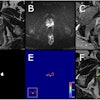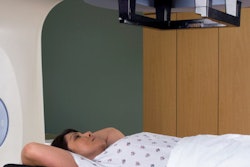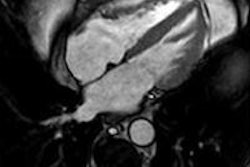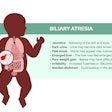
Radiation therapy (RT) has played a key role in reducing breast cancer mortality rates, but even at low doses it can increase a woman's risk of heart disease, according to new research from the University of Oxford in the U.K. published on 14 March.
Writing in the New Enland Journal of Medicine, the authors found that the damaging effects of radiation therapy to the heart were especially evident in women at increased risk of a heart attack before therapy -- suggesting that physicians need to work with patients before, during, and after breast cancer radiation therapy to minimize that risk.
Sarah Darby, PhD, and colleagues conducted the study of major coronary events (heart attack, heart surgery, or death from heart disease) in 2,168 women who received radiation therapy for breast cancer between 1958 and 2001 in Sweden and Denmark. The study included 963 women with major coronary events and 1,205 controls (NEJM, 14 March 2013).
Mean radiation doses to the whole heart and to the left anterior descending coronary artery were estimated from each woman's radiotherapy chart, according to Darby and colleagues.
The team found that the overall average mean radiation dose to the whole heart was 4.9 Gy, and that rates of major coronary events increased with the mean dose to the heart by 7.4% per Gy. The increase in risk of heart disease started within the first five years and continued for decades, Darby's group found.
"Exposure of the heart to ionizing radiation during radiotherapy for breast cancer increases the subsequent rate of ischemic heart disease," the team wrote. "The increase is proportional to the mean dose to the heart, begins within a few years after exposure, and continues for at least 20 years. Women with pre-existing cardiac risk factors have greater absolute increases in risk from radiotherapy than other women."
What's the takeaway? Cancer and heart physicians need to work together as they treat breast cancer patients receiving radiation therapy, wrote Dr. Javid Moslehi, director of cardio-oncology at the Dana-Farber Cancer Institute's Adult Survivorship Program, in an editorial published along with the study.
"An important lesson for the oncologist may be that the time to address concerns about cardiovascular 'survivorship' is at the time of cancer diagnosis and before treatment rather than after completion of therapy," Moslehi wrote. "Similarly, cardiologists need to assess prior exposure to radiation therapy as a significant cardiovascular risk factor in survivors of breast cancer."



















